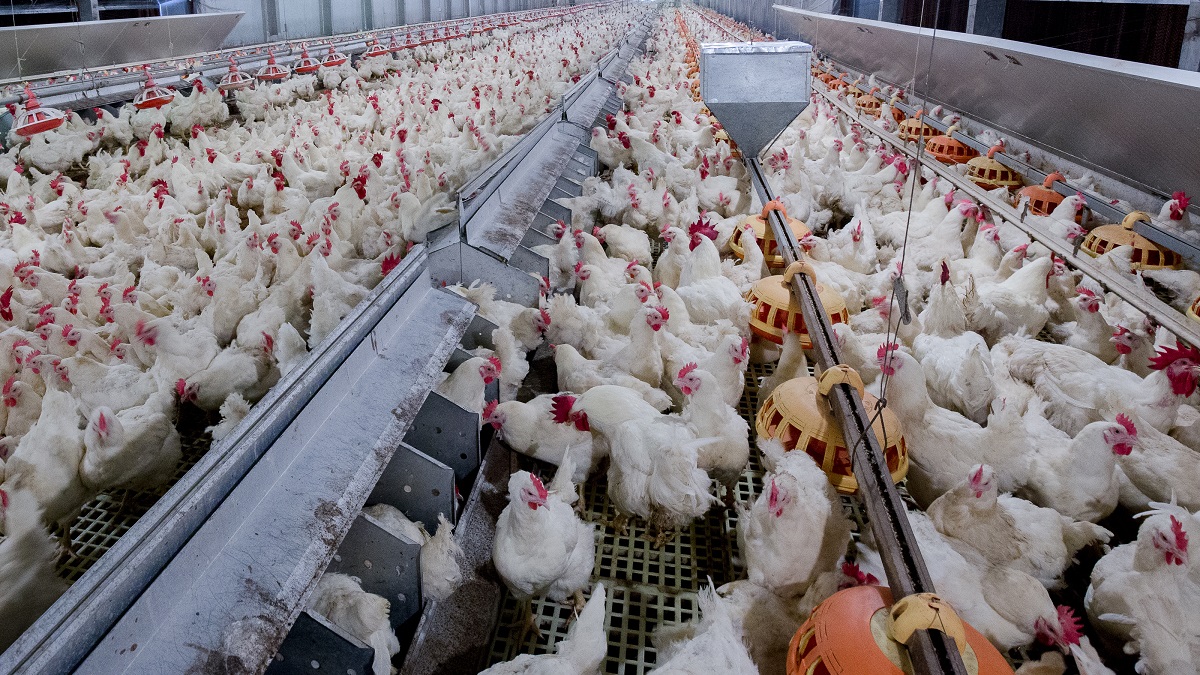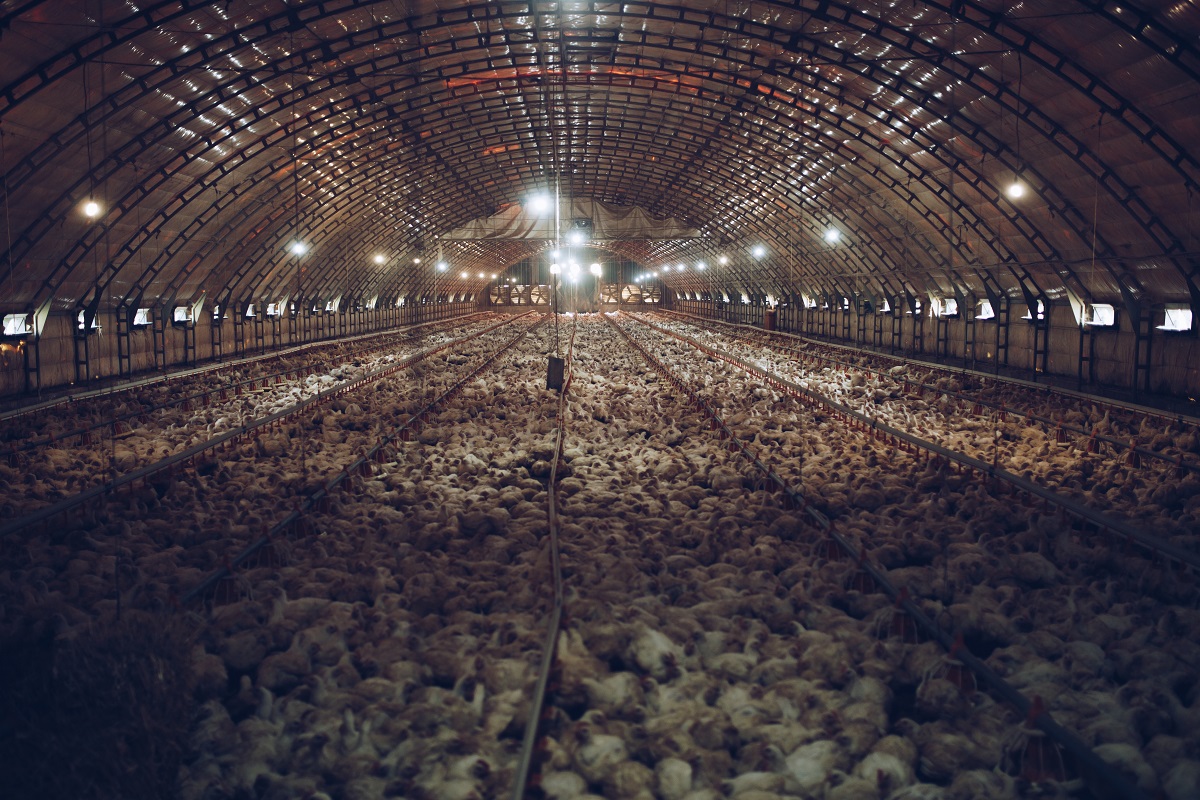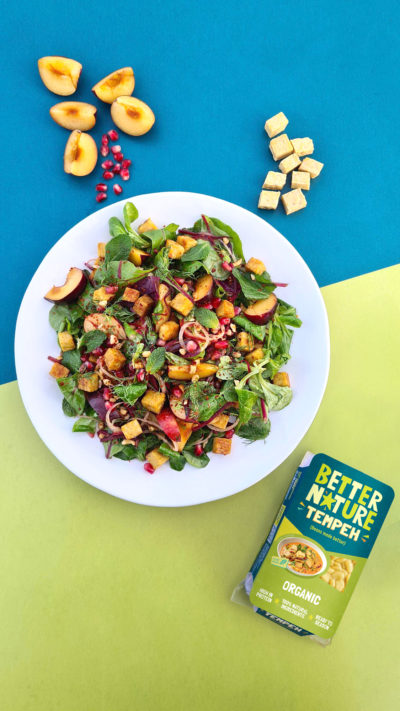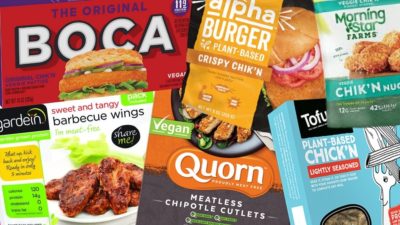It’s often hailed as a health and fitness superfood, but is chicken meat actually healthy? We explore this below.

Chicken is presented to us as the pinnacle of “clean eating,” and we’re told it’s an ideal source of protein because it’s lower in calories and fat than red meat. But is chicken healthy, and how does it compare to plant-based protein sources?
Despite what the marketing campaigns tell us, there are various health concerns associated with eating chicken. Not only is chicken contaminated with bacteria, but it also raises LDL (“bad”) cholesterol to the same extent as red meat.
Keep reading to learn why chicken is far from the superfood it’s made out to be.
Cholesterol
It is well-documented that saturated fat and cholesterol are key contributors to heart disease, both of which are abundant in animal-derived foods.
Many people swap red meat for chicken, believing it is a health food. Although there are some nutritional benefits, chicken is still high in LDL cholesterol compared to plant-based foods.
Research has shown that chicken meat raises LDL cholesterol to the same extent as red meat. One study compared diets low in saturated fat that obtain protein from red meat, white meat, and meatless sources. It found that red and white meat raised LDL cholesterol compared to meat-free protein sources such as legumes, grains, and nuts.
According to the Physicians Committee for Responsible Medicine, a typical serving of chicken also contains about 50% fat, and about 30% of that is saturated fat. Plant-based diets include plenty of whole grains, seeds, nuts, fruits, and vegetables. They tend to be naturally lower in saturated fat. Many studies have linked plant-based diets to lower cholesterol levels.
Contamination
In addition to the cholesterol content of chicken, it’s also a significant cause of food poisoning. According to the Centers for Disease Control and Prevention (CDC), contaminated poultry products affect over one million people every year in the US.
And in 2021 in the UK, a deadly outbreak resulted in a recall of chicken products from several major grocery stores.
The problem doesn’t stop there. Campylobacter is another health concern associated with eating chicken products. Even though the Food Safety and Inspection Service will accept a maximum level of Campylobacter, there are still concerns that chicken meat sold in retailers is contaminated with it. According to the CDC, the National Antimicrobial Resistance Monitoring System (NARMS) found Campylobacter on 24% of raw chicken bought from grocery stores in 2015.
It’s still possible to suffer from food poisoning on a vegan diet, but by swapping chicken for plant-based protein sources, we can omit the biggest cause of foodborne illnesses.

Antibiotic resistance
Antibiotic resistance is another reason chicken is far from being the “clean” food we’re told it is.
An estimated 66% of all antibiotics in the world are used on farmed animals. Although US meat producers are no longer permitted to use antibiotics to promote the growth of animals, the animal agriculture industry still routinely uses them to try and prevent inevitable outbreaks of disease caused by filthy living conditions. The World Health Organization has urged countries against this practice of using antibiotics to prevent diseases instead of treating them, as it promotes antibiotic resistance.
It’s estimated that antibiotic resistance will cost $100 trillion and will cause 10 million deaths per year by 2050.
While this issue isn’t specific to chickens, they are farmed in numbers greater than any other land animal and live in overcrowded, unsanitary conditions where injury is common and disease spreads quickly.
By swapping chicken for plant-based protein sources, we can reduce this misuse of antibiotics.
Bird flu
If you’ve read anything about intensive chicken farming, you know that the typical factory farm is a breeding ground for disease. According to the US Department of Agriculture (USDA), a strain of avian flu was detected in more than seventeen states in 2022, making it the worst outbreak since 2015. This has led to the destruction of more than 13 million birds so far. Scientists have also raised fears that avian flu viruses pose a pandemic threat.
This investigation into a typical chicken farm by Mercy For Animals shows there’s nothing “clean” about how these animals are reared for food.
So, is chicken healthy?
When compared with plant-based sources of protein such as legumes, seeds, beans, nuts, and whole grains, it’s clear that chicken isn’t the superfood it’s made out to be.
By eating plants, we’re not contributing to the unsanitary conditions on factory farms that breed disease and misuse precious antibiotics. We reduce our risk of ingesting harmful bacteria from contaminated food products. We can have healthy cholesterol levels and lower our risk of developing heart disease.
Why not swap chicken for plant protein sources and delicious vegan chicken alternatives?
Find out more by checking out our Choose Chicken Free campaign.









